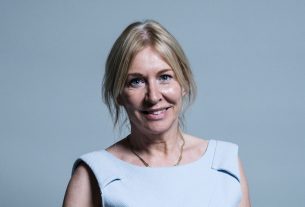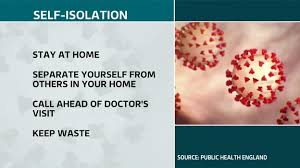Witnesses testifying at the Covid inquiry this week have pointed to the UK’s lack of preparedness, Brexit, austerity, and racism as the weaknesses leading to an inadequate response to the pandemic. Several experts said the UK had prepared for a deadly flu outbreak rather than a pandemic like coronavirus. They also accused the government of investing excess energy into Brexit. Those factors, combined with years of austerity and a lack of investment in the NHS, led to Britain’s inability to respond in a measured and meaningful way when the pandemic struck.
In her testimony, UK Health Security Agency chief executive Professor Jenny Harries revealed that authorities had been aware of the UK’s unpreparedness since 2018. She also told the inquiry that the focus lay on the flu rather than on the possibility of an outbreak of other deadly viruses.
On Monday, David Cameron, who was PM between 2010 and 2016, testified, reiterating much of Harries’ testimony. He blamed the UK’s lack of preparation on Britain’s focus on the flu virus:
“Much more time was spent on pandemic flu, and the dangers of pandemic flu rather than on potential pandemics of other, more respiratory diseases, like Covid turned out to be.
“This is so important — so many consequences followed from that.”
While Cameron had “ring-fenced” health spending during his tenure, his government still count as the author of UK austerity. Spending continued in health, rising at a much slower pace, however. An ageing population put increasing pressure on an already overstretched health service, leaving it in dire straits when Covid reached the UK.
In a submission to the inquiry, Professor Clare Bambra of the University of Newcastle and the head of the University College London Institute of Health Equity, Professor Marmot, wrote:
“The UK entered the pandemic with its public services depleted, health improvements stalled, health inequalities increased, and health among the poorest people in a state of decline.”
One of the architects and lawmakers of austerity, George Osborne, countered sharply, arguing that austerity had helped the UK deal with the pandemic:
“I have no doubt that taking those steps to repair the UK’s public finances in the years following the financial crisis of 2008/9 had a material and positive effect on the UK’s ability to respond to the Covid-19 pandemic.”
Lawyer Hugo Keith KC told the inquiry that the government was focusing on delivering a no-deal Brexit to the extent that it had no capacity to bolster its pandemic preparedness:
“Planning (for Brexit), from 2018 onwards, crowded out and prevented some or perhaps a majority of the improvements that central government itself understood were required to be made to resilience planning and preparedness.”
Marmot and Bambra also highlighted a lack of focus on the likely inequalities arising from a pandemic when preparing for a pandemic:
“Pandemic plans are about how to best mitigate the adverse impacts (particularly in terms of hospitalisations, deaths and morbidity) of infectious disease outbreaks across the whole population.
“To do this effectively, they should, in our view, also anticipate and develop ways to address who is most likely to be impacted and to address potential inequalities.”
Lockdowns ‘damaged a generation’ – Dame Sally Davies
In her emotional testimony to the Covid inquiry, former chief medical officer Dame Sally Davies said that children were suffering the ill effects of nationwide lockdowns to this day. Prof Sir Chris Whitty’s predecessor is today the master of Trinity College Cambridge. She told the inquiry that “watching young people struggle” had been heartbreaking.
“The damage I now see to children and students from Covid, and the educational impact, tells me that education has a terrific amount of work to do.
“We have damaged a generation, and it is awful as head of a college in Cambridge watching these young people struggle.
She added: “I know in pre-schools they haven’t learned how to socialise and play properly; they haven’t learned how to read at school. We must have plans for them.”
Dame Sally Davies tearfully apologised to bereaved families.
Valance and Whitty testify at the Covid inquiry
Sir Chris Whitty appeared at the inquiry today, saying shutting the nation down was “a radical thing to do” while he added that the vaccine task force was “likely to fail”. For his part, Sir Patrick Vallance told the inquiry that ministers should have made scientific advice public more speedily. He added that advisory groups neither entertain “radical” solutions” such as lockdowns nor do they meet regularly between emergencies.
Both men will likely appear before the Covid inquiry again in September to answer questions concerning decisions taken from Spring 2020 onwards.
Next week, Matt Hancock will testify.




